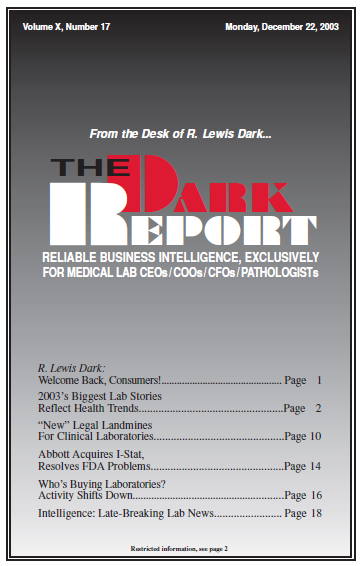CEO SUMMARY: As the number of independent clinical laboratories dwindles, most remaining owners seem content to continue building their business—at least until a buyer makes them an offer “they can’t refuse.” Acquisitions of pathology group practices were also few in number during 2003. However, the reduced number of labs in the United States is causing …
Who’s Buying Labs? Activity Shifts Down Read More »
To access this post, you must purchase The Dark Report.


